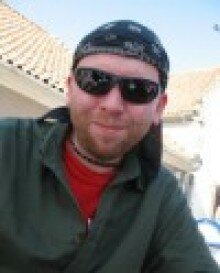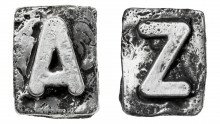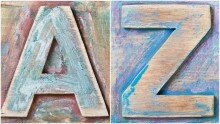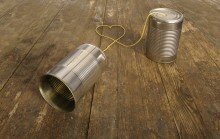Nederlands ►

There is a close connection between the life of Jürgen Rooste and the Estonian capital, Tallinn. He was born there in 1979, went to school there and studied Estonian linguistics at the Pedagogical University of Tallinn, and also where he taught literature at a secondary school. For the past five years, Rooste has also worked as editor of the cultural weekly Sirp. Since March 2007, he has been head of the Estonian Institute in Helsinki.
In 1999, Rooste published his first collection Sonetid (Sonnets, awarded the Betti Alver Prize). This collection does not contain a single sonnet, but refers to the literary faction Siuru, founded in 1917, and the title Sonetid has been borrowed from one of the most conspicuous poetic debuts of that era, by Marie Under.
Rooste’s language and style are characterised by his use of free verse and often of spoken language. The tone is more informative or ecstatic than it is lyrical or reflective. How he approaches something as unnamable as ‘love’ finds expression, for example, in his poem ‘Do you love me to the edge of infinity’, which is addressed to an imaginary female station attendant: “Do you love me to the edge of infinity/and far/far past the border on the other side...”
His poems give the impression of being a spontaneous stream of associations that nevertheless includes references, key words or borrowed motifs.
About the time that Rooste and the Young Tallinn Creators were appearing on the literary scene, the term ‘close-to-life’ was introduced in order to denote their new style, taken over from a movement from the 1930s that opposed the former aesthetics, and focusing instead on socio-political reality – although Rooste’s poetry does have many anarchistic features. Rooste often seeks an affiliation with the punk movement and has also published a collection of punk poetry. Perhaps, though, utterances by the older Beat generation are closer to Rooste than those of punk.
His poetry lectures are often accompanied by punk or rock music. Enclosed with his collection Ilusaks inimeseks from 2005 (Born beautiful) there is a CD that gives an excellent impression of the poetic nature of Rooste’s texts, including humming, growling, panting and sniffing, shouting and babbling. For this collection he was awarded the Estonian Cultural Capital. Rooste’s poetic voice is in the process of changing. Lines of playful self-overestimation and self-irony (“i am karl marx/with the body of arnold schwarzenegger/with the brains of immanuel kant,” etc.) are increasingly making way for lines about shortcomings, melancholy, doubt and putting things into perspective. At the same time, the tone is becoming more precise, transparent and intense.
Jürgen Rooste took part in the Poetry International Festival Rotterdam 2007. This text was written on that occasion.
Selected Bibliography
Valeria Ränik (1990)
Vihkamiseta (1991)
Tigudele (1998)
Veri valla (2000)
Lameda taeva all (2002)
Rõõm ühest koledast päevast (2003)
Ilusaks inimeseks (2005)




